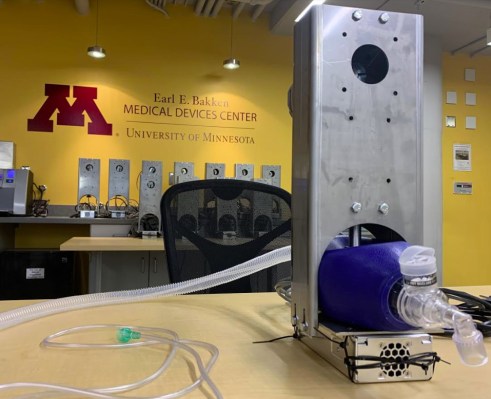The U.S. Food and Drug Administration (FDA) has authorized the manufacture of the Coventor ventilator, a new hardware design first developed by the University of Minnesota. The project sought to create a ventilator that could provide the same level of life-saving care as existing ventilator models, but with a much lower cost to help ramp production quickly and make them affordable to the health institutions that need them.
The Coventor becomes the first of these types of novel ventilator designs to earn an Emergency Use Authorization (EUA) from the FDA. Just like it sounds, an EUA isn’t a full traditional medical device approval like the drug and device regulator would ordinarily issue, but an emergency, temporary grant in the interest of helping provide access to resources in short supply, or without the usual full chain of approvals, in times of crisis.
The coronavirus pandemic is potentially the best example of such a crisis in modern memory, and the respiratory illness caused by COVID-19 requires treatment including intubation and ventilator breathing support for the most severe cases. Ventilator hardware has been in short supply given the volume of cases, both in the U.S. and abroad, and a number of solutions have been proposed including new hardware designs and modifications to other types of medical breathing apparatus to account for the gap.
U of M’s Coventor, developed with a team including engineering and medical school faculty, is a desktop-sized device that costs around $1,000 to produce, making it a much more viable alternative if sold at cost to medical facilities when compared to the $20,000 to $25,000 retail price of your average existing hospital-grade ventilator hardware.
Both medical device maker Medtronic (the company that’s also working with Tesla on its ventilator manufacturing plans) and Boston Scientific (which will be producing the Coventor for distribution following this approval) contributed to the development of the design. The University also announced today that it would be making the Coventor’s specs open-source so that it can be manufactured globally, provided other companies seek and secure similar approvals from the FDA and relevant international health authorities.
